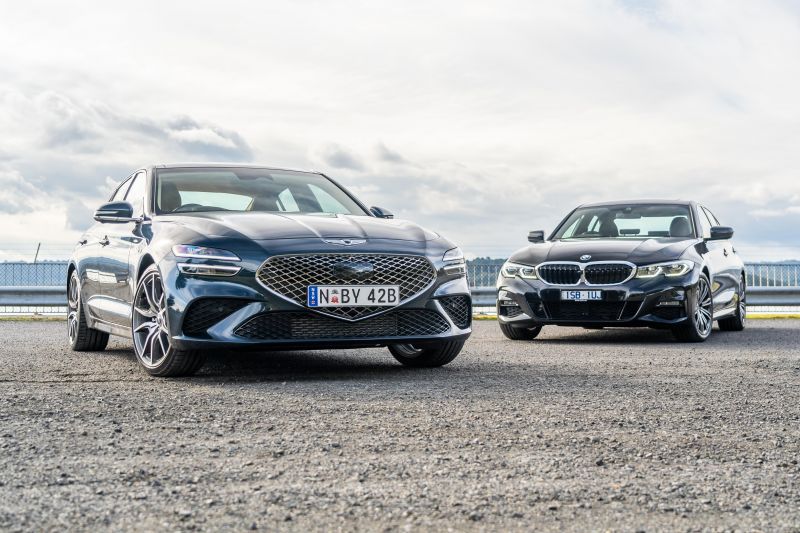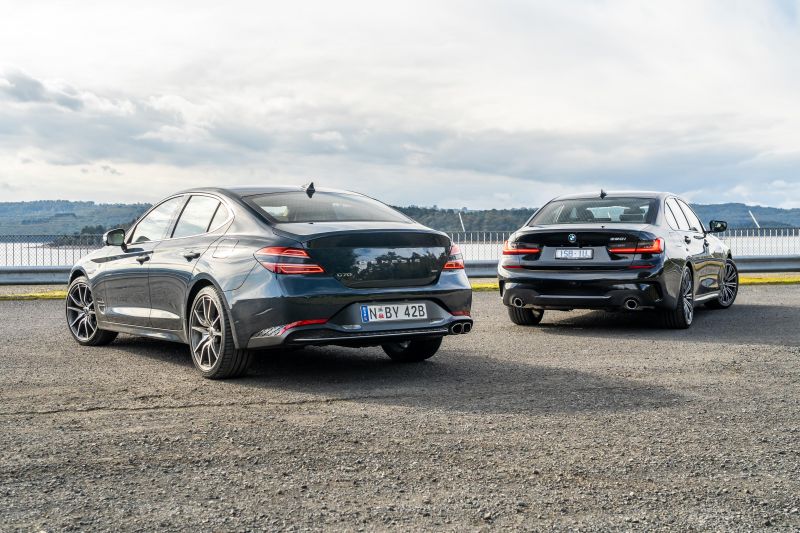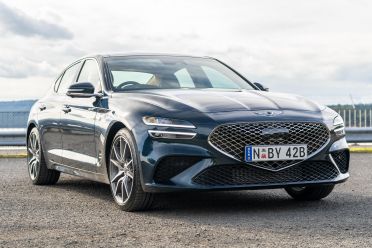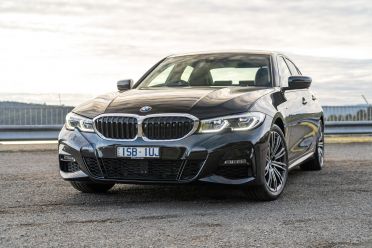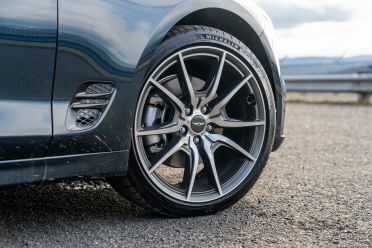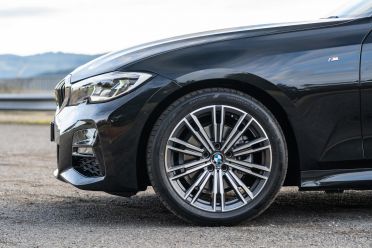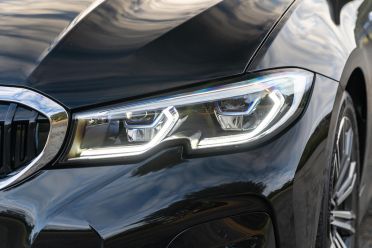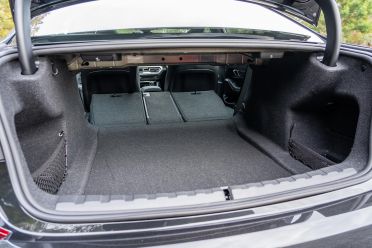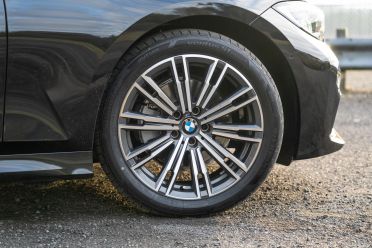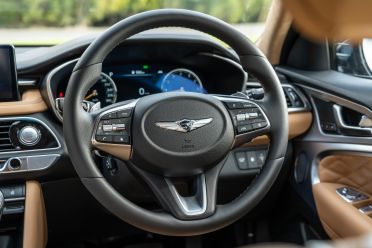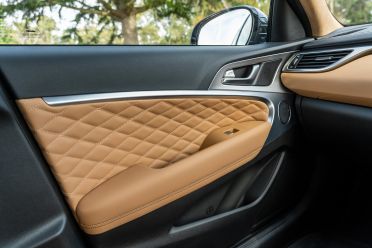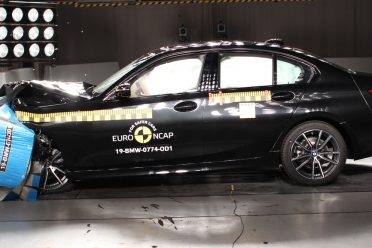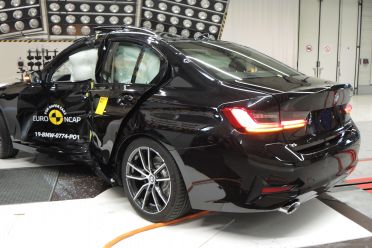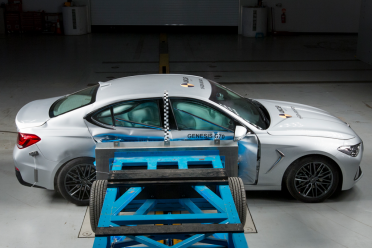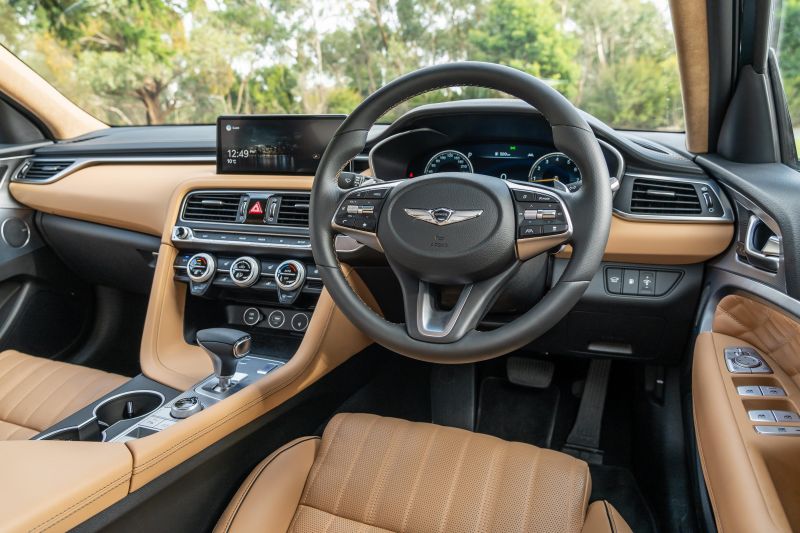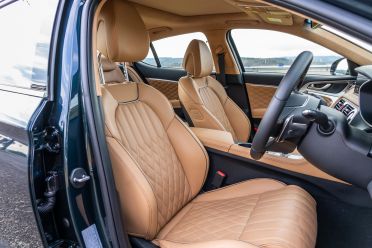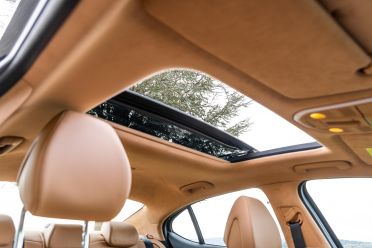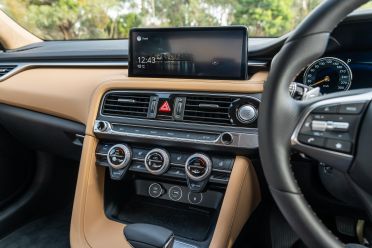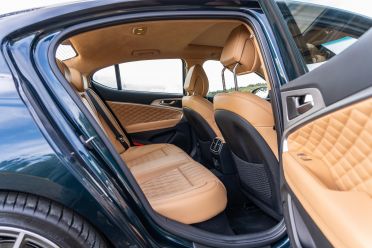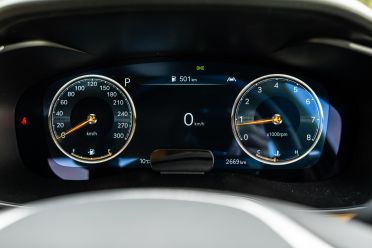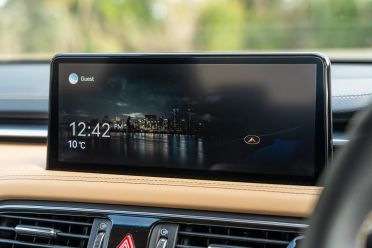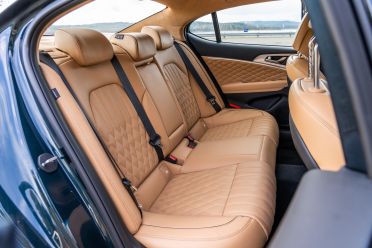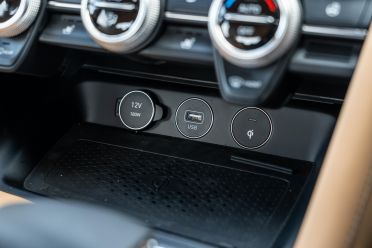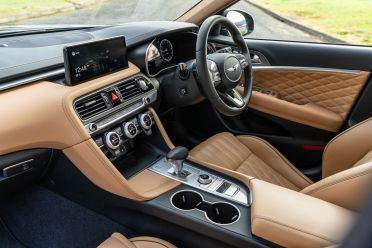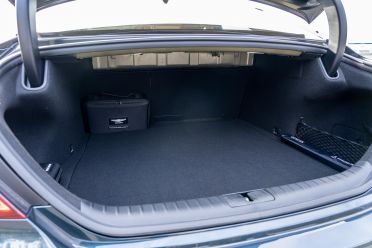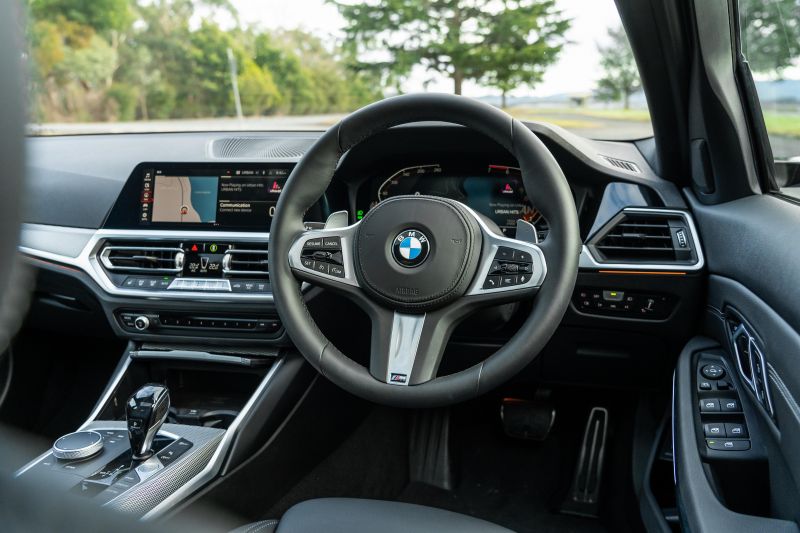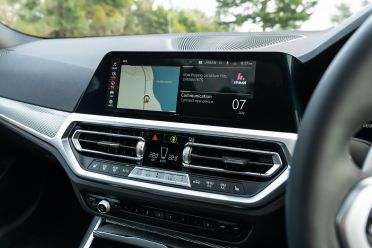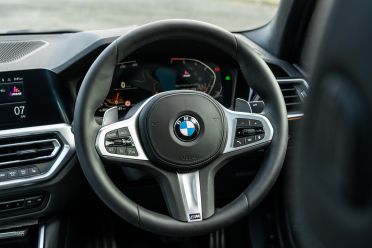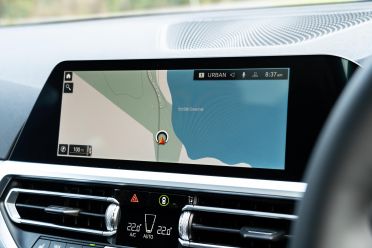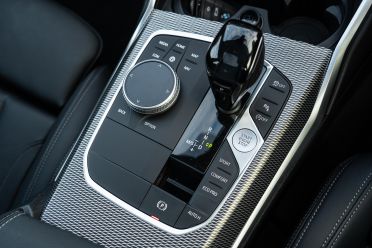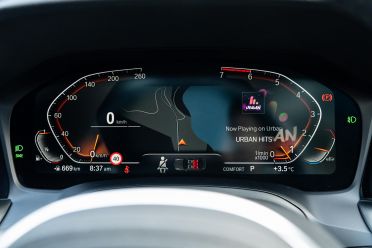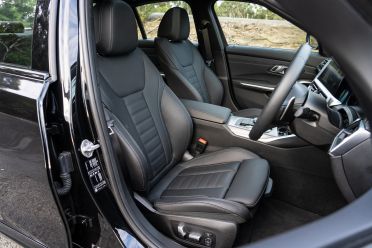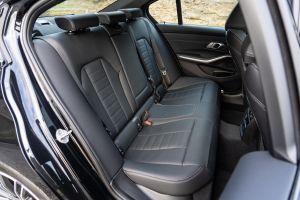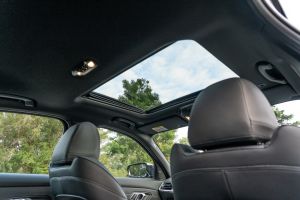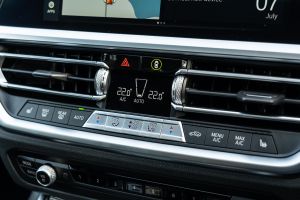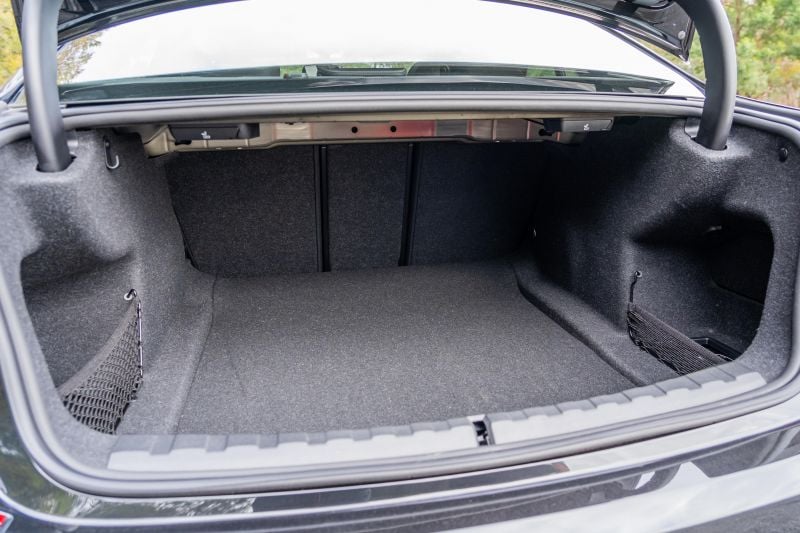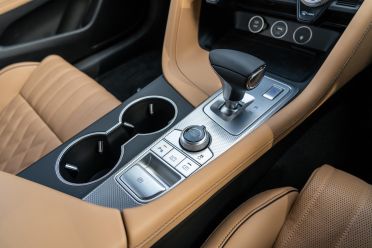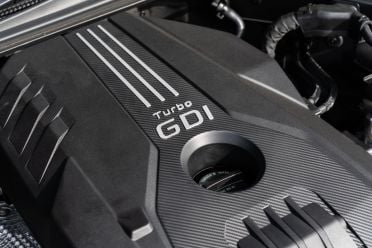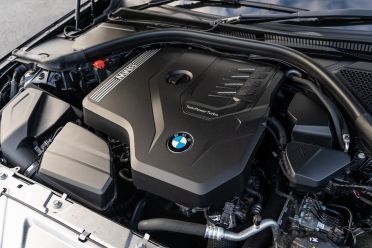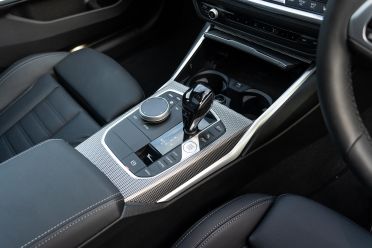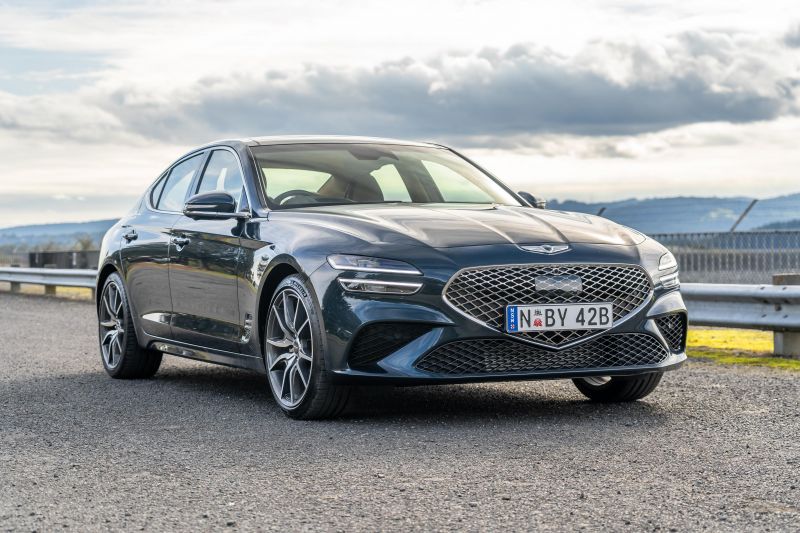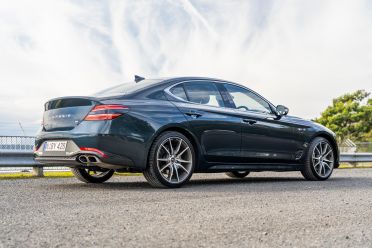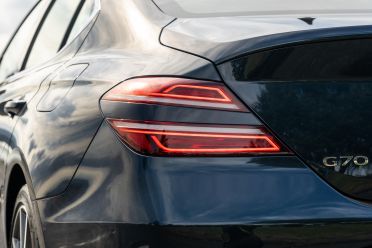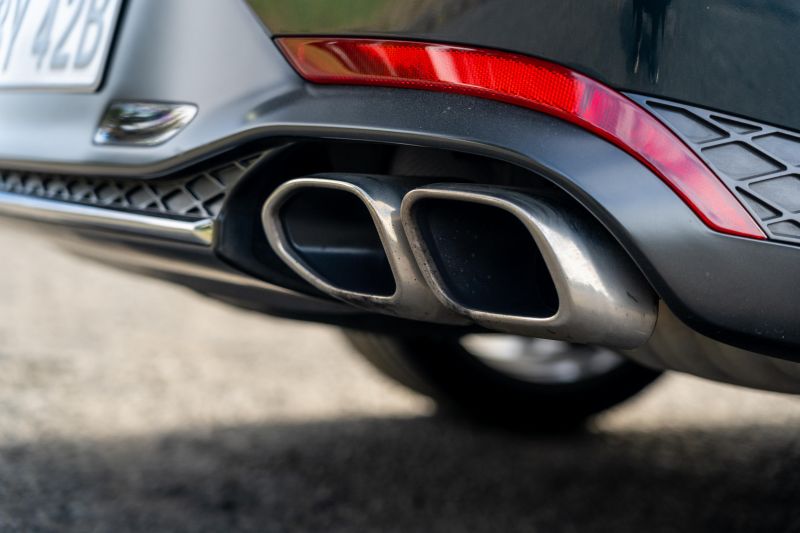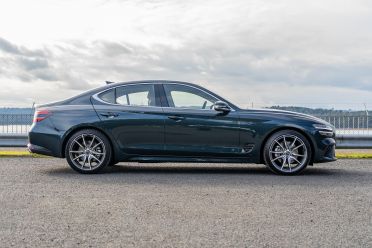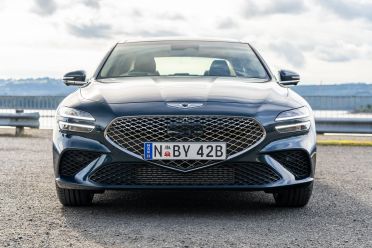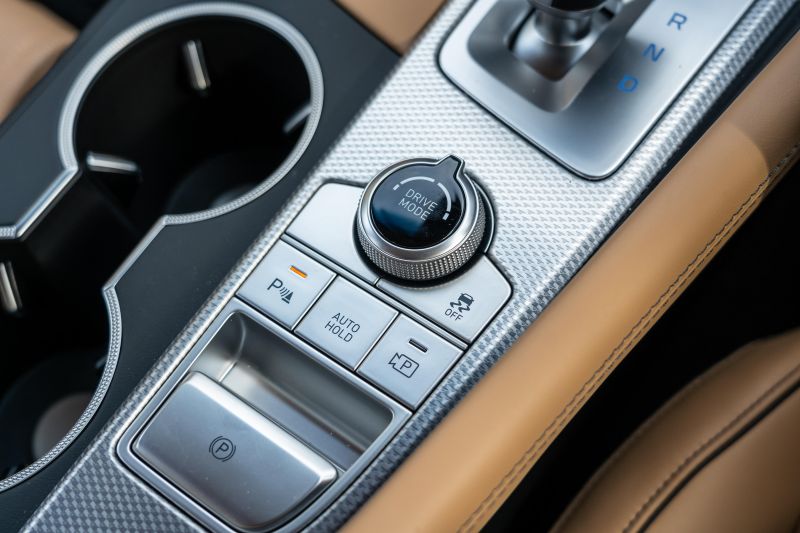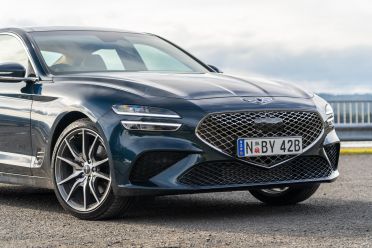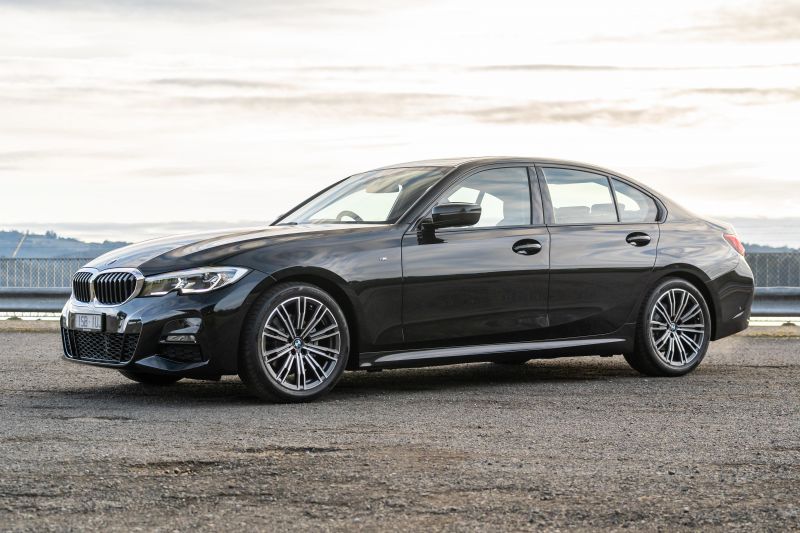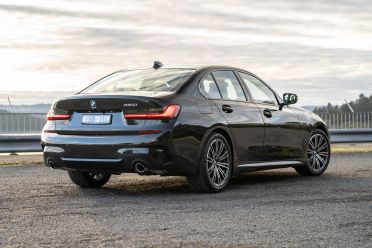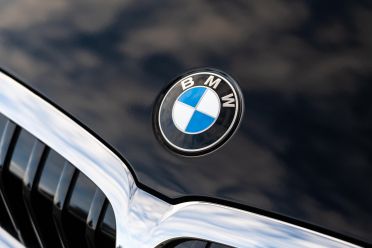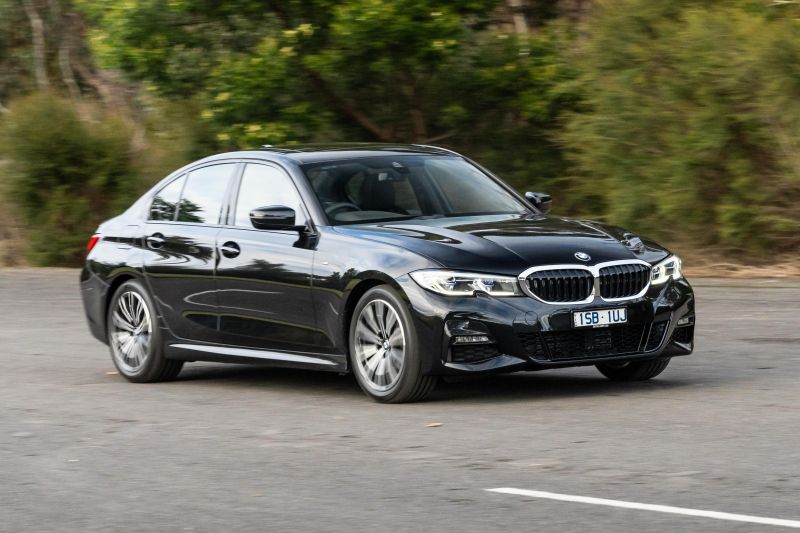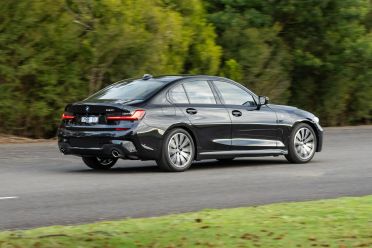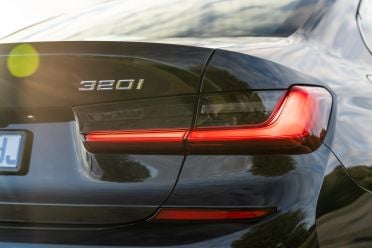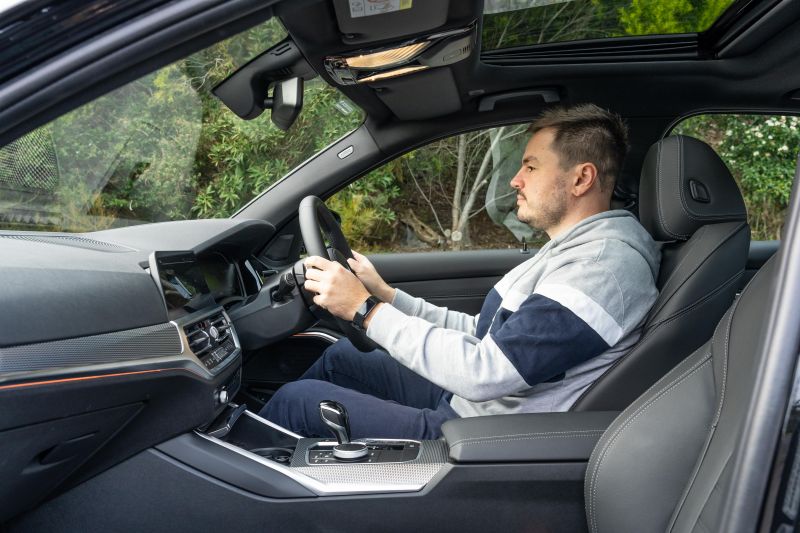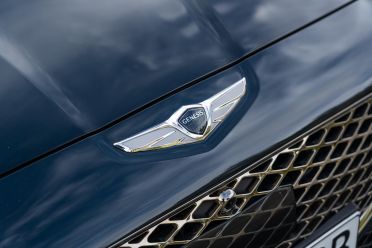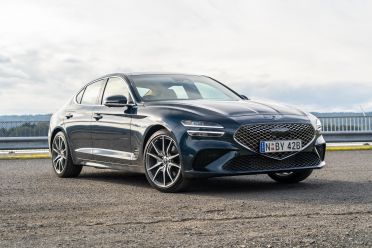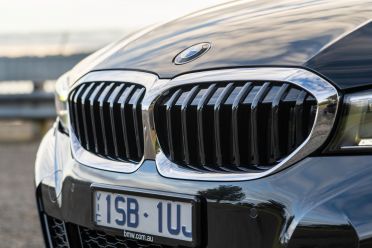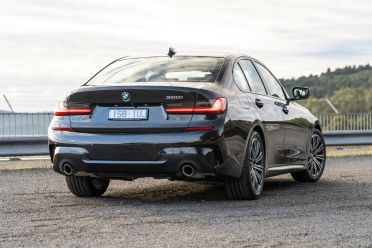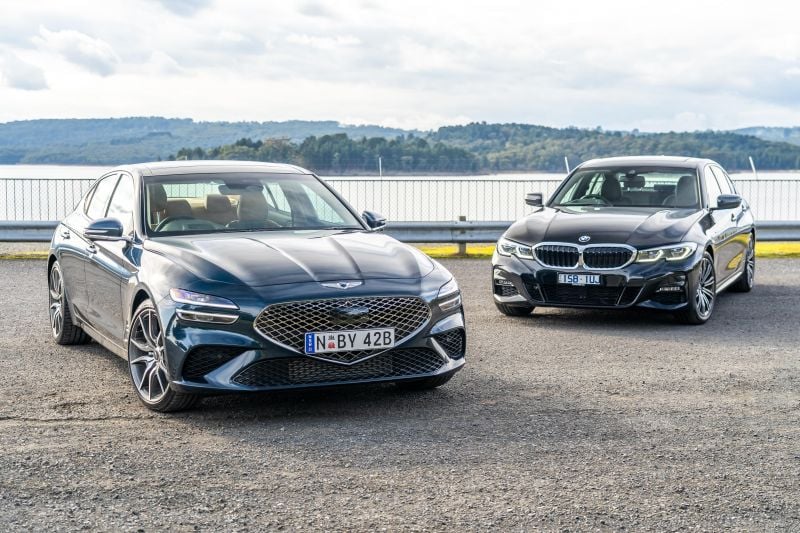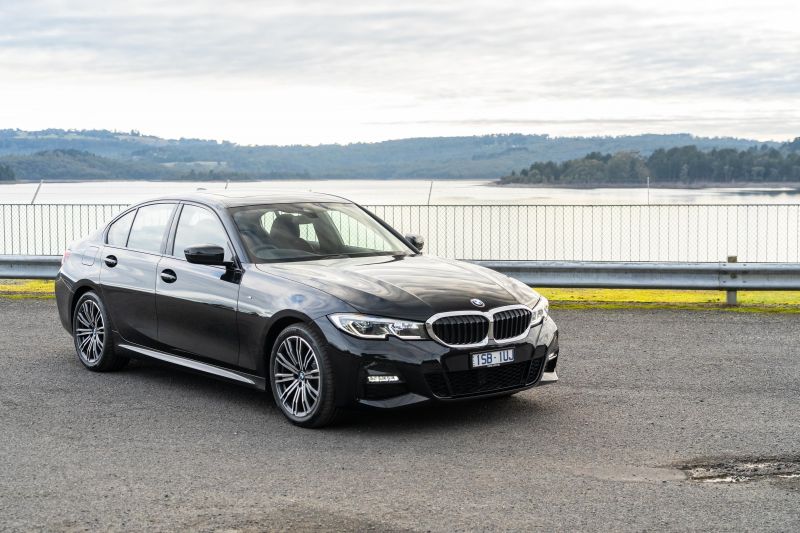For a long time the BMW 3 Series was the default mid-sized sedan for anyone who likes driving.
A descendant of the 2002, the car that saved BMW, the 3 Series has been around for 45 years, over the course of which it’s fended off constant attacks from Audi and Mercedes-Benz.
Now it’s being bombarded from all sides. Not only does it have the A4 and C-Class to worry about, the 3 Series is facing competition from Jaguar, Volvo, Lexus, Alfa Romeo – even Tesla, with its wildly popular Model 3.
It’s also under fire from the Genesis G70, which doesn’t deviate far from the path laid down by the 3er.
Beneath its newly facelifted bonnet is a punchy turbocharged engine, and the rear-wheel drive chassis promises plenty for keen drivers. Its cabin is a leather-lined den, and the value in inarguable.
Does the long-standing king, the 3 Series, have what it takes to ward off another coup, or has the upstart G70 managed to end its reign?
How much?
With a starting price of $63,000 before on-road costs, the un-optioned G70 represents good value compared to the base 3 Series or C-Class.
Our tester also came with the $10,000 Luxury Pack, however, bumping its price to $73,000 before on-road costs.
Also available are the Sport Line Package ($4000) and matte paint ($2000), but neither were fitted to our tester.
Over in Bavaria, the 320i is the cheapest member of the 3 Series family.
It’s priced from $70,900 before on-road costs in M Sport or Luxury Line guises, although our tester also came with the Visibility Package ($5330) and Comfort Package ($2860) for an as-tested price of $79,090 before on-road costs.
Vehicles as tested (before on-road costs)
- BMW 320i – $79,090
- Genesis G70 2.0T – $73,000
What do you get?
As an upstart in the luxury world, you’d expect the Genesis to offer more standard equipment. That’s how it plays out in practice.
Both cars on test feature the following. When fitted as an option, this is included in brackets:
- Touchscreen infotainment with satellite navigation
- 12.3-inch digital instrument cluster (Luxury Pack on Genesis)
- Head-up display (Luxury Pack on Genesis)
- DAB+ digital radio
- Automatic LED headlights with LED daytime running lights
- Rain-sensing windscreen wipers
- Proximity key access (Comfort Package on BMW)
- Heated front seats (Comfort Package on BMW)
- Powered boot (option on BMW, Luxury Pack on Genesis)
- Front and rear parking sensors
- Power-folding exterior mirrors
- Wireless phone charging
- Leather interior trim
- Sunroof (Visibility Package on BMW)
Our BMW tester came with the following options, and the following unique features compared to the Genesis:
- 40:20:40 folding rear bench
- Wireless Apple CarPlay and Android Auto
- 18-inch alloy wheels
- Laser headlights (Visibility Package)
- Interior ambient lighting (Visibility Package)
Meanwhile, the G70 with the Luxury Package packed the following unique features compared to the BMW:
- Adaptive cruise control with lane-centring
- Surround-view camera
- Ventilated front seats
- Heated steering wheel, rear seats (Luxury Pack)
- 15-speaker Lexicon sound system (Luxury Pack)
- Nappa leather upholstery (Luxury Pack)
- Suede headliner and pillars (Luxury Pack)
- Electronic tilt and telescopic steering wheel (Luxury Pack)
- Acoustic laminated windscreen and front door glass (Luxury Pack)
- 19-inch alloy wheels
Are they safe?
Both these cars have five-star ANCAP crash ratings. The BMW earned its score in 2019, while the Genesis was rated in 2018.
The BMW scored 97 per cent score for adult occupant protection, 87 per cent for child occupant protection, 87 per cent for vulnerable road user protection, and 77 per cent for safety assist.
The Genesis earned an adult occupant protection score of 81 per cent, a child occupant protection score of 86 per cent, a vulnerable road user protection score of 69 per cent, and a safety assist score of 81 per cent.
Standard safety equipment in both these cars includes:
- Autonomous emergency braking with pedestrian detection
- Lane-departure warning
- Blind-spot monitoring
- Driver attention monitoring
- Rear cross-traffic alert
- Reversing camera with front and rear parking sensors
The Genesis adds to these features:
- Lane-following assist
- Adaptive cruise control with stop/go
- Rear cross-traffic assist
- Safe exit warning
- Surround-view camera
Some of these features are available as part of a $2900 Drivers Assistant package on the 320i. It gets you:
- Front cross-traffic alert
- Lane-keeping assist
- Semi-autonomous parking assist
- Adaptive cruise control with stop/go
- Surround-view camera
What are they like inside?
Genesis
This is more like it. The G70 that first lobbed in Australia was a bit ‘meh’, but the facelift (and the Luxury Pack) has turned it into a much more upmarket place.
The cognac-coloured Nappa leather seat trim looks classy and feels seriously nice, and the quilting on the seats and door trims adds a bit of visual excitement.
The driver sits low, and the seats have electric bolster and under-thigh extensions to really tailor the position, but the Genesis does feel smaller than the BMW from behind the wheel.
Tall drivers will have their hair brushing the headlining in sunroof-equipped cars, and legroom behind my driving position was non-existent. Not limited, not tight, literally non-existent.
Our tester also had an annoying rattle from its overhead console on anything but billiard-smooth tarmac, which would immediately have had me back at the dealership demanding a fix.
All the buttons and dials on the dashboard are within easy reach, and feel of a relatively high quality, but the infotainment screen is perched too far away to comfortably use – even if you have long arms like me.
It’s a re-skinned take on the latest Hyundai and Kia system which, although functional, looks and feels a bit basic compared to the glossy, snappy BMW OS7.0 system in the 3 Series.
The same goes for the 3D instrument cluster, which initially had me feeling a bit cross-eyed. It’s too magnified in its most aggressive mode, but you quickly adjust when it’s pared back slightly.
It’s a shame there’s no mapping, performance gauges, or more interesting layouts on offer. What’s the point of digital dials that just look like analogue dials?
Storage is good around the cabin. The door pockets are spacious, there’s a wireless phone charger under the dashboard, and the under-arm storage bin is perfect for wallets or snacks.
Things aren’t so rosy in the back, where legroom is tight and headroom is limited compared to the BMW.
The G70 has a sexier roofline than the more traditional, three-box BMW, but it comes at the cost of practicality.
Then again, we know the people who used to buy cars like the G70 are now going for mid-sized SUVs (like Genesis’s own GV70), so rear-seat practicality might be less of a concern than it once was.
You get a fold-down armrest with cupholders, air vents, and USB charging back there, along with heated seats as part of the Luxury Pack.
Boot space is a claimed 330L with the rear seats in place – well down on what’s on offer in the BMW. The space itself has a letterbox opening that makes it less practical for boxy items, and the boot lid is lower than in the BMW.
BMW 320i
The cabin of the 3 Series immediately feels more grown up than that of the G70.
To start with, it looks more modern than the G70, with a clean dashboard and more high-tech design to the infotainment system.
The materials are very different to those in the Genesis. The leather doesn’t feel as lush and the headlining isn’t as upmarket… but the patterned metal on the transmission tunnel and dashboard is high-quality, and the way the buttons and dials all click is nicer than in the Genesis.
As is always the case with BMW cars the driver sits nice and low, and the steering wheel extends right out to meet tall drivers. There’s nothing to split the two when it comes to driving position, although I prefer the chubby wheel in the BMW.
The technology in the 3 Series is the best in the game. BMW OS7.0 is one of the most intuitive systems out there, and having the choice between a rotary dial, a touchscreen, and ‘Hey BMW’ voice controls means there’s always a smart way to interact with it.
Not only is Apple CarPlay wireless, it takes up the whole screen rather than just a limited window of it. Not only does the satellite navigation have more modern graphics, it’s backed by up-to-date traffic information. There’s just an extra layer of polish to the BMW.
Even the driver display is better, despite its backhanded rev counter and limited map capability.
Storage space is plentiful in the BMW. Like the G70 it has big door pockets, a useful under-arm storage space, plus cupholders and a wireless charger on the centre console. There’s also a felt-lined pocket to the right of the steering wheel for garage keys.
The BMW is far more usable than the Genesis in the back, where it has more legroom and more headroom. The bigger glasshouse makes it easier to see out, and the wider doors make it easier to get in and out, or to load children.
There’s a fold-down central armrest, air vents, and USB-C device power back there.
With 480L of boot space, the BMW is miles more practical than the Genesis if you’re into carrying big things.
The opening is much bigger so loading and unloading is easier, and the boot is meaningfully taller.
For now, BMW is alone in offering a wagon version if practicality is the name of the game – although a G70 Shooting Brake is coming to Australia.
| BMW 320i | Genesis G70 2.0T | |
|---|---|---|
| Length | 4709mm | 4685mm |
| Width | 1827mm | 1850mm |
| Height | 1435mm | 1400mm |
| Wheelbase | 2851mm | 2835mm |
| Weight | 1458kg | 1658kg |
| Boot space | 480 litres | 330 litres |
What’s under the bonnet?
Genesis G70
Power in the 2.0T comes from a turbocharged 2.0-litre four-cylinder petrol engine making 179kW of power and 353Nm of torque.
It’s rear-wheel drive, and has an eight-speed torque converter automatic as standard.
Claimed fuel economy is 9.0L/100km on the combined cycle.
BMW 320i
The base 320i is powered by a 2.0-litre turbocharged four-cylinder petrol engine with 135kW of power and 300Nm of torque.
Like the Genesis, it’s rear-wheel drive and has an eight-speed torque converter automatic as standard.
Claimed fuel economy is a much lower 6.3L/100km on the combined cycle.
| BMW 320i | Genesis G70 2.0T | |
|---|---|---|
| Petrol engine | 2.0-litre 4-cyl turbo | 2.0-litre 4-cyl turbo |
| Power | 135kW @ 6500rpm | 179kW @ 6200rpm |
| Torque | 300Nm @ 1350rpm | 353Nm @ 1400rpm |
| Driven wheels | Rear | Rear |
| 0-100km/h | 7.1 seconds | 6.1 seconds |
| Transmission | 8-speed auto | 8-speed auto |
| Power to weight | 92.6kW/tonne | 108.0kW/tonne |
| Fuel use claim | 6.3L/100km | 9.0L/100km |
How do they drive?
Genesis G70
The Genesis packs a much bigger wallop than the BMW, as its outputs would suggest.
Mash the accelerator and the G70 pauses for a couple of beats and the turbo greedily inhales air, and then it disappears down the road riding a wave of mid-range torque.
Its claimed 6.1-second run to 100km/h is hot hatch quick, and it feels every bit that fast in the real world when it’s on the boil.
It’s a shame Hyundai hasn’t managed to make it sound good. There’s a noise generator, but the fake sound it makes is a strange, ethereal intake growl that doesn’t really fit with the car’s grown-up sports sedan billing.
Turn it off and live with less obnoxious engine note, even though it sounds a bit like a Dyson.
In normal mode, the eight-speed automatic transmission slurs smoothly to a tall gear to improve fuel economy, but it will kick down one or two gears when you’re in a hurry, to drop you into the meat of the engine’s torque band.
It isn’t the crispest gearbox in the world, although flicking into sport does sharpen things up. It also makes it hold a lower gear for less shifting and more punch when you’re in a real hurry.
It also adds a bit of weight to the steering, and makes the digital dials go all angry and red. Nice.
Set up as such the Genesis feels every bit like a sporty mid-sized sedan should. It feels balanced once you’re into a corner, with a sticky front end and classic rear-drive feeling when you get on the power.
It’s not particularly tail-happy, with an abundance of traction from the rear tyres and the slightly laggy turbocharged power delivery combining to make it feel like a corner carver more than a tail-out hooligan.
Then again, that’s perfectly appropriate.
There’s real talent in the Genesis chassis, particularly in the way it rides. Like the BMW, it doesn’t have adaptive dampers, but it strikes an impressive balance between keeping its shapely body in check and keeping the driver comfortable.
It floats over lumps and bumps in the city in a way that has the BMW feeling all stiff and choppy, but it doesn’t feel any looser in the corners. Well done Genesis, because it makes the G70 a friendlier beast in the city.
At essentially any speed the Genesis feels every bit like a luxury sedan. It’s quiet and composed, with very little noise from the engine or tyres except for on some seriously rugged coarse chip stuff.
As for in town? There’s no excuse for scraped wheels or bumpers. Not only is the Genesis nice and compact, it’s backed by a full suite of cameras and sensors. It even projects guidelines on the road behind you when you’re parking.
BMW 320i
The BMW 320i isn’t a firecracker, and it doesn’t pack the mid-range wallop of the Genesis, but its engine is still a lovely thing.
It hits 100km/h in 7.1 seconds, so it’s slower than the G70, but the 2.0-litre is smoother and has a lovely growl to it. There’s almost no lag down low, it just picks up and goes.
The ZF eight-speed transmission in the BMW is slightly smarter than the auto in the Genesis, holding taller gears more confidently on light throttle inputs, and changing down more decisively when you demand more performance.
Unfortunately, the polished drivetrain is let down by the terse ride on the fixed standard dampers. It deals surprisingly well with big hits – think speed bumps or dips on the freeway – but every little ripple and cat’s eye makes its presence felt.
It just never quite settles, there’s a frustrating choppiness to it. Adaptive dampers are less than $1000. You should tick the option box.
The bigger, less powerful BMW doesn’t feel quite as sporting as the Genesis, but it isn’t all that far behind. It still has a keen front end, and it still has a classic rear-drive balance.
Flicking into Sport adds a bit of weight to the steering and makes the throttle edgier, as is the case in the Genesis. It feels a bit more taut, although the terse suspension doesn’t translate to iron-clad body control.
It feels like a regular, slightly sportier-than-average sedan in fine 3 Series tradition. It’s a bit woolier and a bit heavier than before, but the 2021 model is still a 3er.
Like the Genesis, it’s quiet and refined on the highway, with less road roar than we’ve experienced in some higher-performance German sedans. The engine is silent at a cruise, although the lack of adaptive cruise is a bit rude at this price.
Yes, BMW can get away with it because people are still buying the 3er, but in 2021 adaptive cruise feels like something a luxury car should have – especially now it’s above the X1, X2, 1 Series, 2 Series, and 2 Series Gran Coupe in the range.
With slightly lighter low-speed steering and better all-round visibility, the 3 Series is just as easy to thread through the city as the Genesis.
Its reversing camera is crystal clear, and the parking sensors have a handy visualisation that shows you more precisely how close you are to an object.
Sure, an SUV is the default choice for inner-city families, but you don’t need a tall driving position and a badge with Q, V, X, or GL at the start.
Cost of ownership
Genesis G70
The Genesis has a five-year, unlimited-kilometre warranty and five years or 100,000km of free servicing, neither of which the BMW can match.
If you own a G70, you can also use the Genesis Concierge Service if you live within 70km of a Genesis Studio. This means an employee will come to your house and leave you with a Genesis loan car while your car is taken to be serviced.
BMW 320i
BMW hasn’t made the leap to a five-year warranty, instead offering a disappointing three-year, unlimited-kilometre coverage.
BMW offers two servicing packages of either three years/40,000km or five years/80,000km, priced at $1450 and $1750 respectively.
CarExpert’s Pick
The Genesis is better value than the BMW, but it isn’t a better car.
Where the 3 Series feels like a car that’s been honed and evolved over 45 years, the Genesis feels less rounded.
Although it’s a more resolved car than the pre-update G70, the 2021 car doesn’t have the same confidence about it as newer Genesis products like the GV80, let alone the BMW.
It can’t match the 3 Series when it comes to technology or practicality, and its more powerful engine doesn’t deliver its performance with the same polish as the four-cylinder in the BMW.
I can understand why you’d buy one – it’s a seriously good looking car – but the BMW is still a better option for more people, even with its shorter list of standard equipment. Just tick the box for adaptive dampers.
Click on the images to view the full gallery.
MORE: Everything BMW 3 Series
MORE: Everything Genesis G70

